
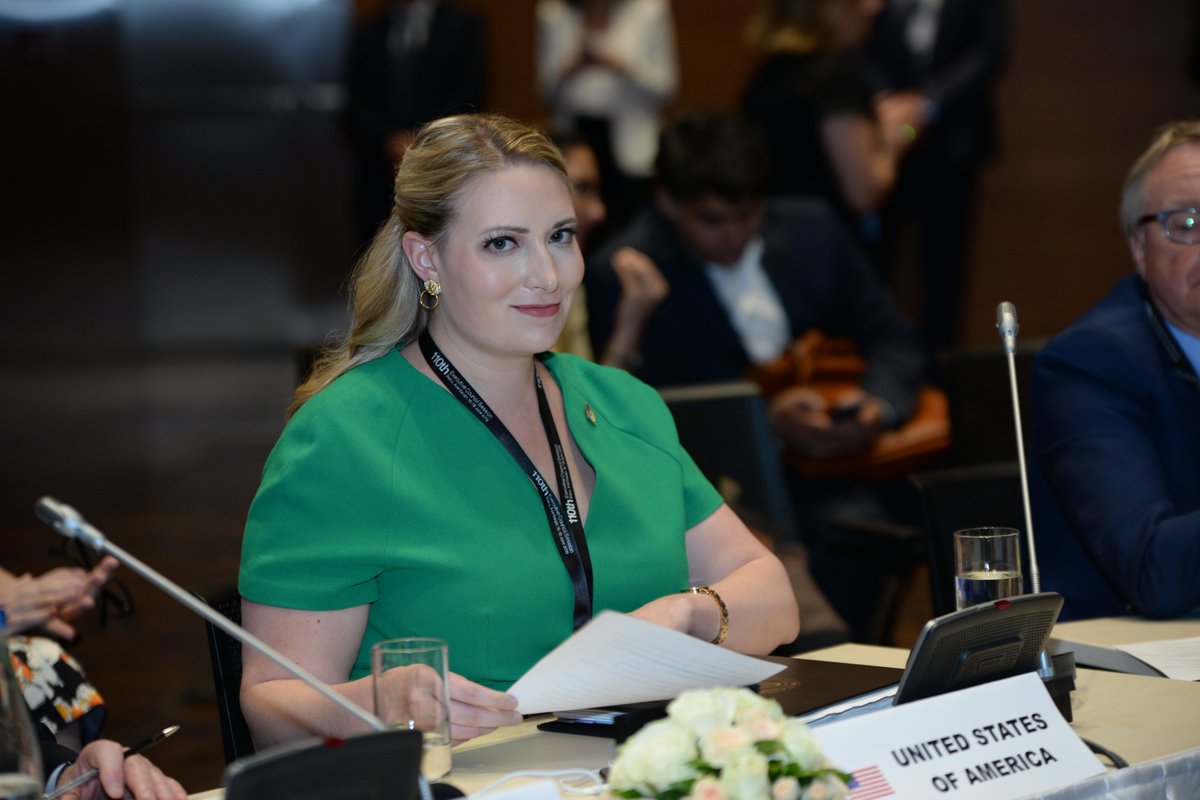
The United States of America is intending to join UNWTO
U.S. Tourism and UNWTO is making history in Baku, Azerbaijan. The World Tourism Organization (UNWTO) is currently holding its Executive Council Meeting in Baku, Azerbaijan. Today the United States voiced its intend to re-join UNWTO. UNWTO had been trying to convince the United States to become a member for many years, and this can be considered a turn for the UN Affiliated organization. The U.S. was a founding member of the UN Affiliated agency World Tourism Organization
According to informed sources talking to eTN from the venue of a meeting at the Hilton Hotel in Baku in Azerbaijan this announcement minutes ago at the Executive Council meeting.
Insiders believe this will be a game changer not only for UNWTO but also for the United States and the involvement of the U.S. within the global travel and tourism industry. For decades the U.S. was never officially on the table, and this move may not only bring the U.S. in the picture but allow a fairer and more balanced approach between the influence China and Russia established in this global industry.
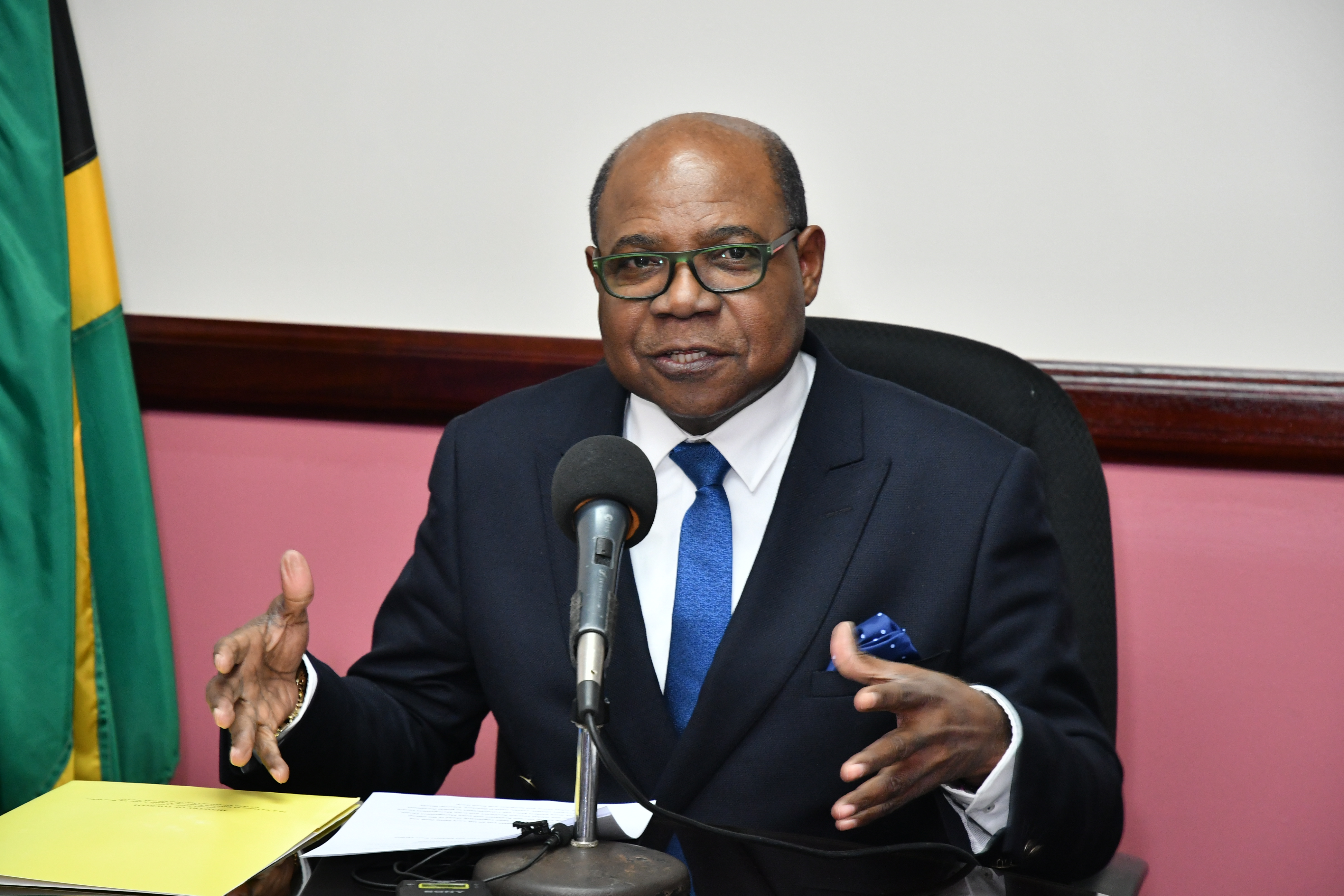
Minister Bartlett Meets With Top Tourism Resilience Partners in Azerbaijan
Minister of Tourism of Jamaica, the Hon. Edmund Bartlett yesterday (June 16) met with some of the leading partners in the Global Tourism Resilience and Crisis Management Centre (GTRCM) to discuss projects and deliverables the Centre will commence following the opening of its new physical facility on Mona campus of the University of the West Indies (UWI) in October this year.
The special dinner meeting was held at the Hilton Baku in Azerbaijan in the margins of the 110th United Nations World Tourism Organization (UNWTO) Executive Council Meeting, taking place June 16 – 18, 2019 in Baku.
Minister Bartlett gave an overview of four critical projects, including the establishment of a barometer to measure resilience and set the standards for certification/accreditation of countries across the world; setting up an International Journal of Tourism Resilience and Crisis Management; building a compendium of best practices based on the experience of countries that have managed disruptions well and those that have not; and establishing an academic Chair at the UWI with responsibility for studies in innovation, resilience and crisis management.
The issue of Corporate Social Responsibility was also raised at Sunday’s meeting. “Corporate Social responsibility is central to the sustainable development of tourism as it is for most industries but particularly tourism because of its extractive nature,” said the Tourism Minister.
“Tourism pulls a lot from communities so we need to have them involved. We need also to have inclusiveness for people with special needs and lifestyle differences in providing the world with the best opportunity to access the rich resources that exist within the people of these communities,” he added.
Minister Bartlett said the meeting brought a fresh energy to the discussion while bringing a new commitment to resource development. “So after the Centre’s official opening in October we can get into action so that it fulfils its role of not being just a centre for academic research but an action centre where results are realized and implemented,” said Minister Bartlett.
In attendance were Ms. Jennifer Griffith, Permanent Secretary in the Ministry of Tourism, Jamaica; Ambassador Dho Young-Shim, a member of the GTRCM Board of Governors; Ms. Elena Kountoura, a member of the European Union for Greece; Mr. Spiros Pantos, Special Advisor to Elena Kountoura; Hon. Didier Dogley, Minister of Tourism, Civil Aviation, Ports & Marine for the Seychelles; and Ms. Isabel Hill, Director, National Travel and Tourism Office, US Department of Commerce
The GTRCM is dedicated to helping vulnerable states across the world to recover quickly from disruptions and crisis that threaten economies and livelihoods globally, using real time data and effective communication. It recently took on a new global perspective with the announcement of regional Centres to be established over the next eight weeks in Nepal, Japan, Malta and Hong Kong.

Bartlett Addresses Global Tourism Leaders at 2019 World Travel and Tourism Council
As a part of a panel of the 2019 World Travel and Tourism Council (WTTC), held on Tuesday, June 11 in New York City, Minister of Tourism, Honorable Minister Edmund Bartlett spoke about the importance of corporate social responsibility (CSR), and how private-public partnerships serve as catalysts for economic growth and the transformation of local communities in tangible ways.
Minister Bartlett, who participated in a panel discussion titled “From Doing CSR to Being CSR,” said, “CSR must seek to create the balance between the idea of ‘me,’ and the definition of ‘we,’.” The Minister added, “In Jamaica we are working closely with our private sector partners to ensure that the ‘we,’ – meaning the residents of Jamaica – will experience the benefits of social and economic resilience. From our point of view, CSR is about enhancing and improving the quality of our lives locally.”
Minister Bartlett has been an ardent supporter of engaging the private sector to advance the sustainable development of tourism in Jamaica and globally. Under his leadership, Jamaica’s Ministry of Tourism has formed private-public partnerships and alliances that span a range of sectors, including transportation, agriculture, health and wellness, manufacturing, and small business. Some of these partnerships have taken the form of foreign direct investment, particularly in the area of accommodation.
In Jamaica and across the Caribbean, several international resorts are engaging in CSR practices in areas such as community outreach, housing renovations and donations to local schools. In Jamaica, Sandals Resorts is an example of how the private sector can take CSR one step further – beyond corporate philanthropy – by developing sustainable projects with direct linkages to local communities.
For example, Sandals Resorts has been working with local Jamaican farmers by donating seeds, and then offering a direct market for the reaped produce. In fact, 90 percent of all produce used in Jamaica is procured locally. Sandals Resorts is also investing in climate-related agricultural training at trade schools and in university programs across the country.
“The people of Jamaica are seeing the benefits of these CSR models, and so we are committed to expanding these social enterprise initiatives with our private sector partners to enhance Jamaica’s capacity to derive more from the growth of tourism in our country,” said Minister Bartlett.
The WTTC represents the travel and tourism private sector globally. Its members include more than 170 CEOs, Chairmen and Presidents of the world’s leading Travel & Tourism companies from all geographies, covering all industries.
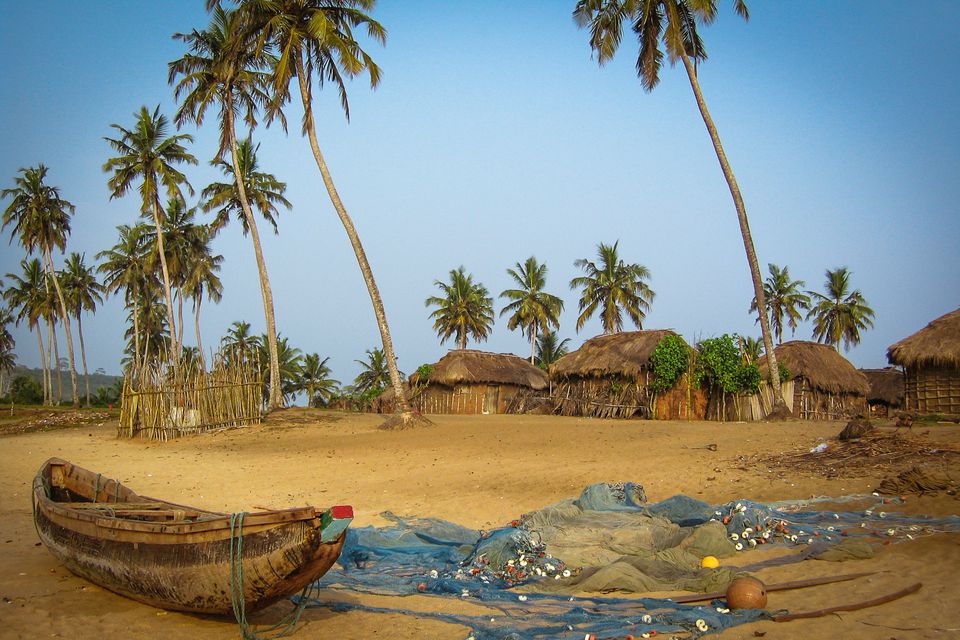
Ghana Remains Safe: African Tourism Board Rapid Response Team offers assistance
Ghana remains sage, security remains vigilant according to a statement issued by Kojo Oppong Nkrumah, the Minister of Information for the Republic of Ghana. This was in response to a shocking attack on two young Canadian women grabbed as they stepped from a taxi outside a golf club in Ghana. The Canadians cannot be considered tourists, but volunteers on a project in Ghana, and are still missing one week later and Canada embassy officers with local police are doing everything to find them.
Officials of Ghana Tourism Authority(GTA) backed by armed police officers have stormed and closed down a hotel in Kumasi (about 200km from Ghana) where the two kidnapped Canadian volunteers stayed before their abduction.
According to the GTA officials, the hotel which has no name situated at Ahodwo near the Golf Park operated without a license and lacked standard security system including CCTV cameras a situation that exposed clients to all forms of attacks.
Abusua FM’s Journalist Akwasi Bodua who covered the exercise reported that the said hotel has no name written on the building nor erected signboard and had been totally deserted at the time the team arrived.
A search for the owner of the hotel is underway.
In the meantime, Canada increased the travel advisory level for this West African Country. Ghana has a booming travel and tourism industry.
The minister in his statement continues to state: “The abduction raised fears of copycat Nigeria-style abductions and sparked warnings of a rising crime if security forces don’t crack down on the gangs responsible.
National Security Officials held a meeting on Monday at the Jubilee House in Accra. The meeting was to examine recent travel advisories about Ghana and intelligence reports on Ghana’s security situation
The meeting concluded that there is no actionable intelligence nor an imminent threat to Ghana. Ghana’s safety and risk profiles remain largely unchanged despite recent events in the sub-region.
The security apparatus of the nation continues to be retooled and vigilant to tackle any major security threat within the jurisdiction. Ghanaians, foreign residents, and visitors are advised to continue to go about their normal ways of life without feat but also encouraged to be security conscious as always. Potential visitors are equally advised that just like other western jurisdictions, the isolated incidents of crime should not and indeed does not undermine the general safety and hospitality for which Ghana is so well known for.”
The African Tourism Board offered assistance through their rapid response team under the leadership of Dr. Peter Tarlow, who was appointed by ATB as their tourism safety and security expert.
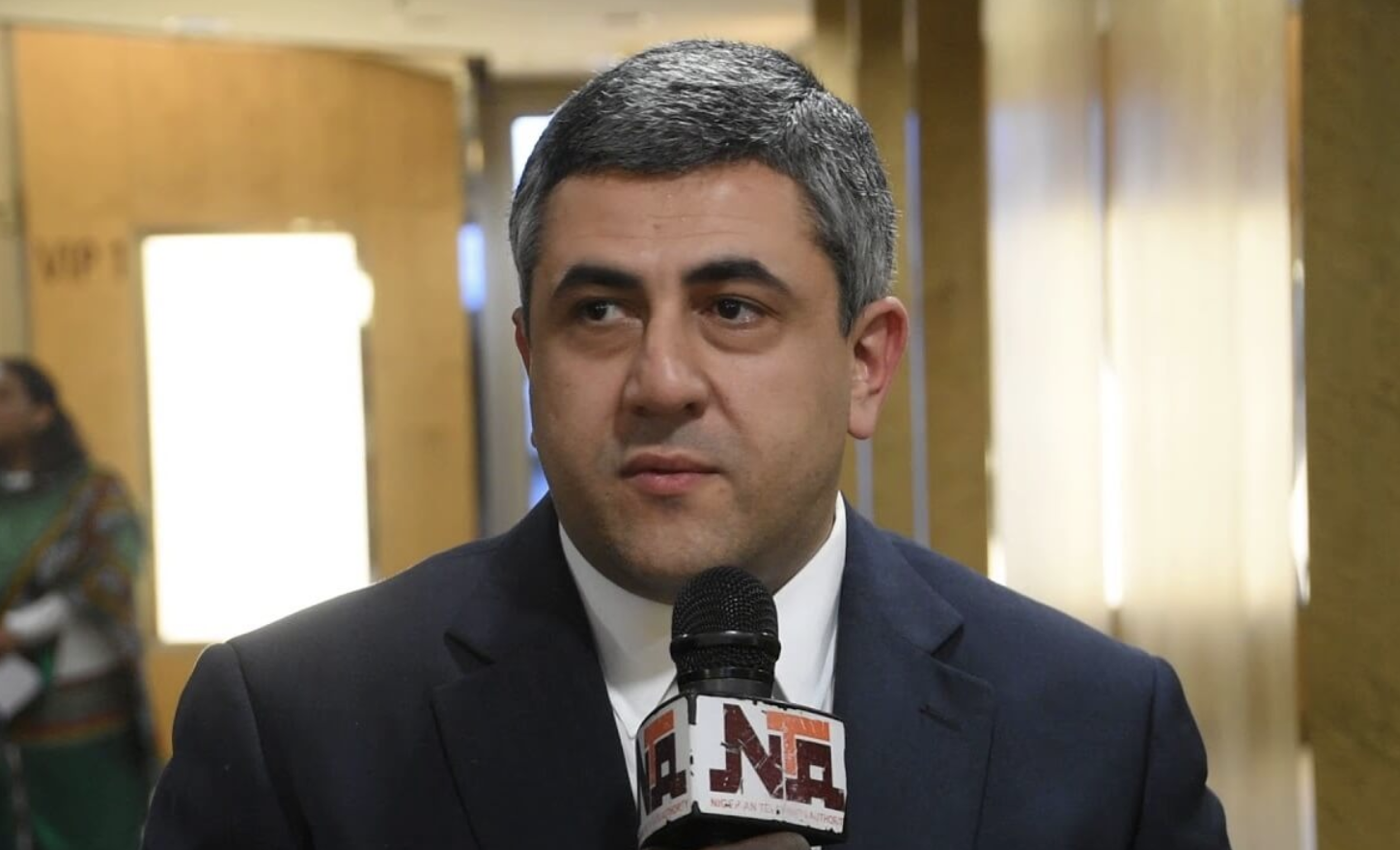
UNWTO: Exports from international tourism hit $1.7 trillion
Exports generated by international tourism reached USD 1.7 trillion in 2018, a 4% increase in real terms over the previous year, a new report from the World Tourism Organization (UNWTO) shows. For the seventh year in a row, tourism exports grew faster than merchandise exports (+3%), reflecting solid demand for international travel in a generally robust economic environment.
Strong growth in outbound travel from many source markets around the world fuelled revenues from international tourism to reach a total USD 1.7 trillion. This accounts for 29% of global service exports and 7% of overall exports of goods and services. These figures consolidate international tourism among the top five economic sectors in the world, behind chemical manufacturing and the fuel industry but ahead of the food and automotive industries.
“Rather than growing in volume we need to grow in value. We are pleased to see that both emerging and advanced economies around the world are benefiting from rising tourism income,” said UNWTO Secretary-General, Zurab Pololikashvili. “Revenues from international tourism translate into jobs, entrepreneurship and a better situation for people and local economies, while reducing trade deficits in many countries” he added.
Total exports from international tourism include USD 1,448 billion in international tourism receipts (visitor spending in destinations) and USD 256 billion in international passenger transport services. Tourism constitutes a key source of foreign exchange and a major tool for export diversification for many destinations.
International tourism receipts increased 4% in real terms (adjusting for exchange rate fluctuations and inflation) to reach USD 1,448 billion in 2018, about USD 100 billion more than the previous year. This is consistent with the 6% increase in international tourist arrivals in 2018.
By regions, Asia and the Pacific led the way with 7% growth in international tourism receipts, followed by Europe with a 5% increase. The Middle East saw 3% growth, while Africa (+1%) and the Americas (0%) recorded more modest results. Central and Eastern Europe and North-East Asia (both +9%) were the subregions with the strongest growth.
France and Russia lead growth among top spenders
Growth in receipts was fuelled by strong demand for international travel in the context of a robust global economy.
Among the world’s top ten source markets, France and the Russian Federation both recorded 11% growth in outbound spending in 2018, while Australia saw a 10% increase.
China, the world’s top spender reported USD 277 billion in international tourism expenditure in 2018, a 5% increase in real terms from a year earlier, while the United States, the second largest, spent 7% more, to reach USD 144 billion.
International expenditure from the United Kingdom grew 3% in 2018, and 4% from Italy, while Germany and the Republic of Korea both reported rather flat results. Further down the ranking, Spain enjoyed 12% higher spending on international tourism in 2018.

UNWTO: Sustainability a key part of tourism policies, but more still to be done
Countries around the world are integrating sustainability in their tourism policies but the evidence on the results of their implementation remains limited, research carried out for the first “Baseline Report on the Integration of Sustainable Consumption and Production Patterns into Tourism Policies” has found.
The Baseline Report, prepared by the World Tourism Organization (UNWTO) in collaboration with United Nations Environment (UN Environment) and with support from the Government of France, is the first global assessment of sustainable consumption and production (SCP) factors within national tourism policies. A total of 101 UNWTO Member States participated in this groundbreaking exercise.
All the tourism policies analyzed refer to sustainability as part of their objectives or vision and 55% address sustainability as a cross cutting element. At the same time, 67% of tourism policies include references to resource efficiency and 64% connect sustainability with the competitiveness of the sector. Tourism policy makers are aware of the importance of SCP but the references to policy instruments aiming at SCP implementation are limited and so is the evidence available for other aspects beyond the economic performance of the sector.
Celebrating the release of the Baseline Report, UNWTO Secretary-General Zurab Pololikashvili says: “Sustainability and competitiveness go hand in hand. Destinations and businesses can flourish while making a meaningful contribution to sustainability in several ways, including through the efficient use of resources, promoting biodiversity conservation and taking action to fight climate change”.
Advancing SCP practices in the tourism sector is essential if the sector is to contribute effectively to sustainable development and the 2030 Agenda. With this in mind, UNWTO has also launched the Sustainable Tourism Policy Talks alongside the Baseline Report. The series of talks feature interviews with Ministers of Tourism on the implementation of national tourism policies.
One Planet Sustainable Tourism Program
The Sustainable Tourism Program aims at scaling up SCP practices that boost the efficient use of natural resources in tourism while producing less waste and addressing the challenges of climate change and biodiversity.
UNWTO is the lead of the One Planet Sustainable Tourism Program with the Government of France as Co-Lead and in collaboration with UN Environment.
The program acts as an implementation mechanism for SDG12 and the Baseline Report and Sustainable Tourism Policy Talks directly contribute to the implementation of One Planet objectives.
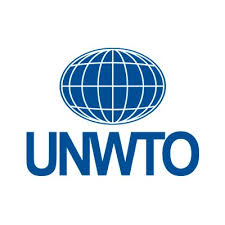
UNWTO: Local residents remain largely positive to urban tourism
A global survey conducted by the World Tourism Organization (UNWTO) and IPSOS shows a positive picture of local residents’ perceptions towards urban tourism. Looking at 15 countries worldwide, the research also identified what residents consider to be the best ways of managing rising numbers of tourists, highlighting differing attitudes to urban tourism among different socio-demographic groups.
The survey aims at a better understanding of residents’ attitudes towards urban tourism. The research is also meant at identifying most valued management strategies to address the emerging challenges that come with increased tourism demand.
“In order to make sure that urban tourism continues to benefit local residents, it is fundamental to implement sustainable policies and practices. This includes the regular monitoring of residents’ attitudes towards tourism and factoring them in the tourism agenda,” said UNWTO Secretary-General Zurab Pololikashvili.
Perceptions…countries and age
Tourism’s impacts are valued most positively in Australia, Argentina, Sweden, the Republic of Korea and Spain. Young respondents (under 34) exhibit a stronger awareness of both the positive and negative impacts of city tourism, in contrast to older respondents (over 50) who perceive the negative impacts less. Younger respondents are also more likely to be in favour of more restrictive measures to manage increased tourism demand. Among older respondents, only 5% think that tourism promotion should be stopped, and only 8% favor limiting the number of visitors in their cities as compared to 12% and 16% of younger respondents.
..travel frequency…
Respondents who frequently travel to international destinations (twice or more in the last year) are less likely to feel that they live in cities with a high number of tourists when compared to respondents who do not travel so regularly. Similarly the perception of a positive impact of tourism is significantly higher among respondents who travelled in the past year.
…infrastructure and experiences – most favoured measures across countries
With regards to potential measures to address growing tourism flows in cities, residents across the 15 countries consider ‘improving infrastructures and facilities’ as the most effective. In Hungary, 89% of respondents stressed this measure as the most adequate, followed by Italy (80%) and Argentina (79%).
In a similar way, ´creating experiences and attractions that benefit residents as well as visitors´ is the second most preferred management strategy, and extremely popular in all countries (82% in Canada and Hungary; 75% and 74% in Argentina and Republic of Korea, respectively).

President Clinton and Minster Bartlett discuss Global Tourism Resilience and Crisis Management Centre
Jamaica Minister for Tourism, the Hon. Edmund Bartlett, met today with former United States President Bill Clinton at the ongoing 4th meeting of the Clinton Global Initiative (CGI) Action Network on Post-Disaster Recovery at the University of the Virgin Islands, St. Thomas, USVI.
The President showed great interest in supporting the Global Tourism Resilience and Crisis Management Centre.The first-ever Global Tourism Resilience and Crisis Management Centre is hosted in Jamaica and was unveiled earlier this year at Montego Bay by the Hon. Minister Bartlett during the 2019 Caribbean Travel Marketplace. Just last week, four more centers were announced in Japan, Malta, Nepal, and Hong Kong.
Minister Bartlett will deliver a keynote address at the GCI event on Tuesday and is expected to point out that the Caribbean is the most disaster-prone region of the world. Most islands are situated within the Atlantic hurricane belt where storm cells are produced, and the region sits along three active seismic fault lines, but it is also the most tourism-dependent region in the world.
President Bill Clinton and former U.S. Secretary of State Hillary Rodham Clinton are currently at the fourth meeting of the Clinton Global Initiative (CGI) Action Network on Post-Disaster Recovery on St. Thomas, U.S. Virgin Islands. The meeting, in partnership with Bloomberg LP and Love City Strong, will continue the discussion around hurricane recovery in the greater Caribbean region, and address topics such as infrastructure, agriculture, workforce development, clean and renewable energy, health, and Caribbean arts and culture.
The approach of the Action Network brings together a diverse group of stakeholders to focus efforts on putting people first, including prioritizing a resilient future by helping communities to plan and prepare for future storms and the mounting effects of climate change.
The Global Tourism Resilience and Crisis Management Centre, founded by Minister Bartlett, seem to be a perfect compliment to the activities spearheaded by the former U.S. President.
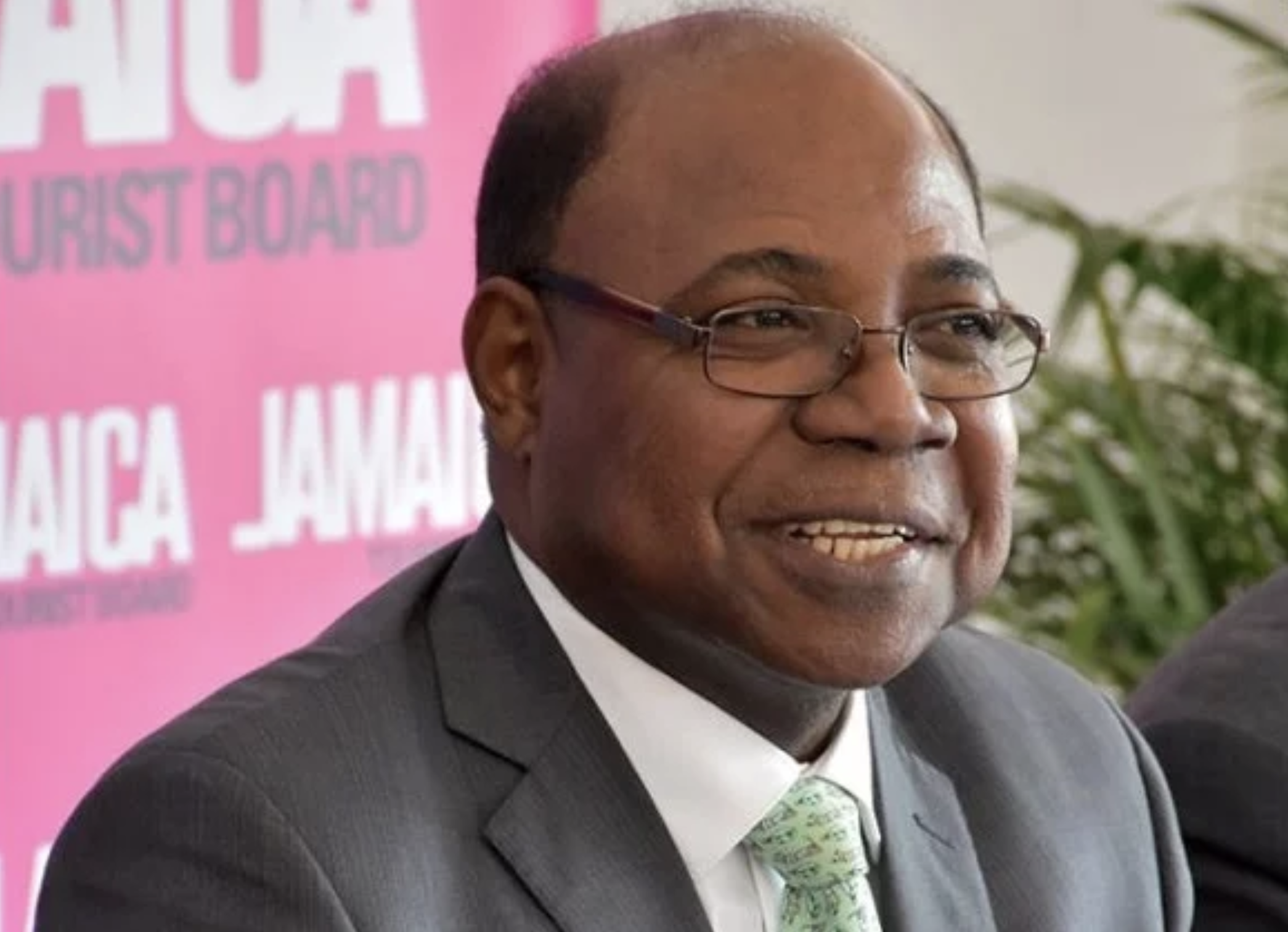
Bartlett Announces the Establishment of Four New Global Tourism Resilience and Crisis Management Centres
Tourism Minister, Hon. Edmund Bartlett says four Global Tourism Resilience and Crisis Management Centres (GTRCM) will be opened in Japan, Malta, Nepal and Hong Kong, in an effort to build the resilience of the Asian tourism product.
“Today, the Global Tourism Resilience and Crisis Management Centre took on a new global perspective, when Nepal became the first of four regional Centres to be established over the next eight weeks. The Director of the Nepal Tourist Board, Deepak Raj Joshi and I, have completed an arrangement for the establishment of the first Centre in Asia,” said Minister Bartlett.
The Minister made this announcement on Friday, while participating in a panel discussion at the inaugural Asian Resilience Summit held in Kathmandu, Nepal on May 30 – 31, 2019.
He went on to share that, “the GTRCM in Kathmandu will become the Centre for the areas covering China and India. The next Centre will be established in Hong Kong and the work is currently going on with the team.”
The GTRCM in Japan will be housed at the Japan International University, which is a private university located in Minamiuonuma city in Niigata Prefecture, Japan.
The first Centre, located at the University of the West Indies, Mona, was launched at the beginning of the year at the Montego Bay Convention Centre, with a number of local and international government leaders and partners, including Prime Minister, the Most Hon. Andrew Holness.
It was first announced during the United Nations World Tourism Organization (UNWTO) Global Conference on Sustainable Tourism in St. James in November 2017, and is tasked with creating, producing and generating toolkits, guidelines and policies to handle the recovery process following a disaster.
“These four new Centres will position the Global Resilience Centre as a true international construct. The University of the West Indies which hosts the primary Centre, will become the coordinating university for these outstanding other universities which are located across the globe slated to host these new Centres,” said Minister Bartlett.
During his visit, the Minister will meet with the Former UNWTO Secretary General, Dr. Taleb Rifai, regarding the recovery strategies for Nepal’s post-earthquake programme, at the request of Prime Minister Andrew Holness.
Minister Bartlett will later travel to the US Virgin Islands to participate at the Meeting of the Clinton Global Initiative (CGI) Action Network on Post-Disaster Recovery during the period June 3-4, 2019. This Action Network brings together leaders from across sectors to develop new, specific, and measurable plans that advance recovery and promote long-term resiliency across the region.
The meeting will outline innovative programmes in the tourism sector and sustainable practices that are inclusive of Small and Medium Enterprises and conducive of economic growth.
“Jamaica continues in its thought leadership in tourism. We also continue to position our country and the Caribbean, as the new reference point for resilience building, particularly for countries that are highly tourism dependent,” said Minister Bartlett.
The Minister is accompanied by Professor Lloyd Waller, Senior Advisor/Consultant and Miss Anna-Kay Newell his Executive Assistant, in Nepal. Professor Waller and Miss Newell will return to Jamaica on June 2, 2019.
The Minister, however, will return to Jamaica on June 6, 2019, as he will be attending the meeting of the CGI Action Network on Post-Disaster Recovery in the US Virgin Islands alone.
The Minister received his invitation to visit Nepal from Deepak Raj Joshi, Chief Executive Officer of the Nepal Tourism Board. The Government of Nepal also funded the Minister’s participation in the Asian Resilience Summit.
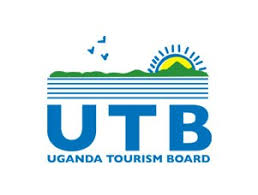
Friendliest Travel Country on Earth Joins African Tourism Board
Uganda is the latest country joining the African Tourism Board as a member. For Ugandans welcoming all nationalities is an intrinsic part of the culture, and residents are quick to offer smiles to newcomers. In 2017 BBC reported Uganda has been described as the friendliest country globally following a survey conducted among expatriates. Together with breathtaking landscapes, wildlife, to high-end restaurants and bars, hotels, and lodges to year-round summer, this country is a perfect travel and tourism destination.
“It is an honour and delight for Tourism Uganda to join the Africa Tourism Board. We are optimistic that the board will steer responsible development of travel and tourism to the African region, play a vital role in harnessing opportunities for the continent and position it as a premier destination for visitors around the world,” said Lilly Ajarova, UTB Chief Executive Officer
“As I say welcome Uganda, I must take this opportunity to salute their tenacity and sincerity for tourism. We undertake as the Africa Tourism Board to be by their side at this critical point in the re-development of Uganda Airline which coincides with the Tourism Board’s drive in bringing to the world the key USBs of Uganda. We are honored to have Uganda as a Member” Alain St.Ange, President Africa Tourism Board added.
Uganda is a landlocked country in East Africa whose diverse landscape encompasses the snow-capped Rwenzori Mountains and immense Lake Victoria. Its abundant wildlife includes chimpanzees as well as rare birds. Remote Bwindi Impenetrable National Park is a renowned mountain gorilla sanctuary. Murchison Falls National Park in the northwest is known for its 43m-tall waterfall and wildlife such as hippos.
There is a wide range of ethnic groups in Uganda with many different languages spoken, namely Luganda English, Bantu, Swahili, Nilotic, and Lumasaba. Christians make up 85.2% of Uganda’s population, there are a certain amount of Sikhs and Hindus, and 12% are Muslims.
More on Uganda, visit the Uganda Tourism Board at www.visituganda.com/
Founded in 2018, the African Tourism Board an association that is internationally acclaimed for acting as a catalyst for the responsible development of travel and tourism to the African region. More information on ATB and a link to join go to www.africantourismboard.com
